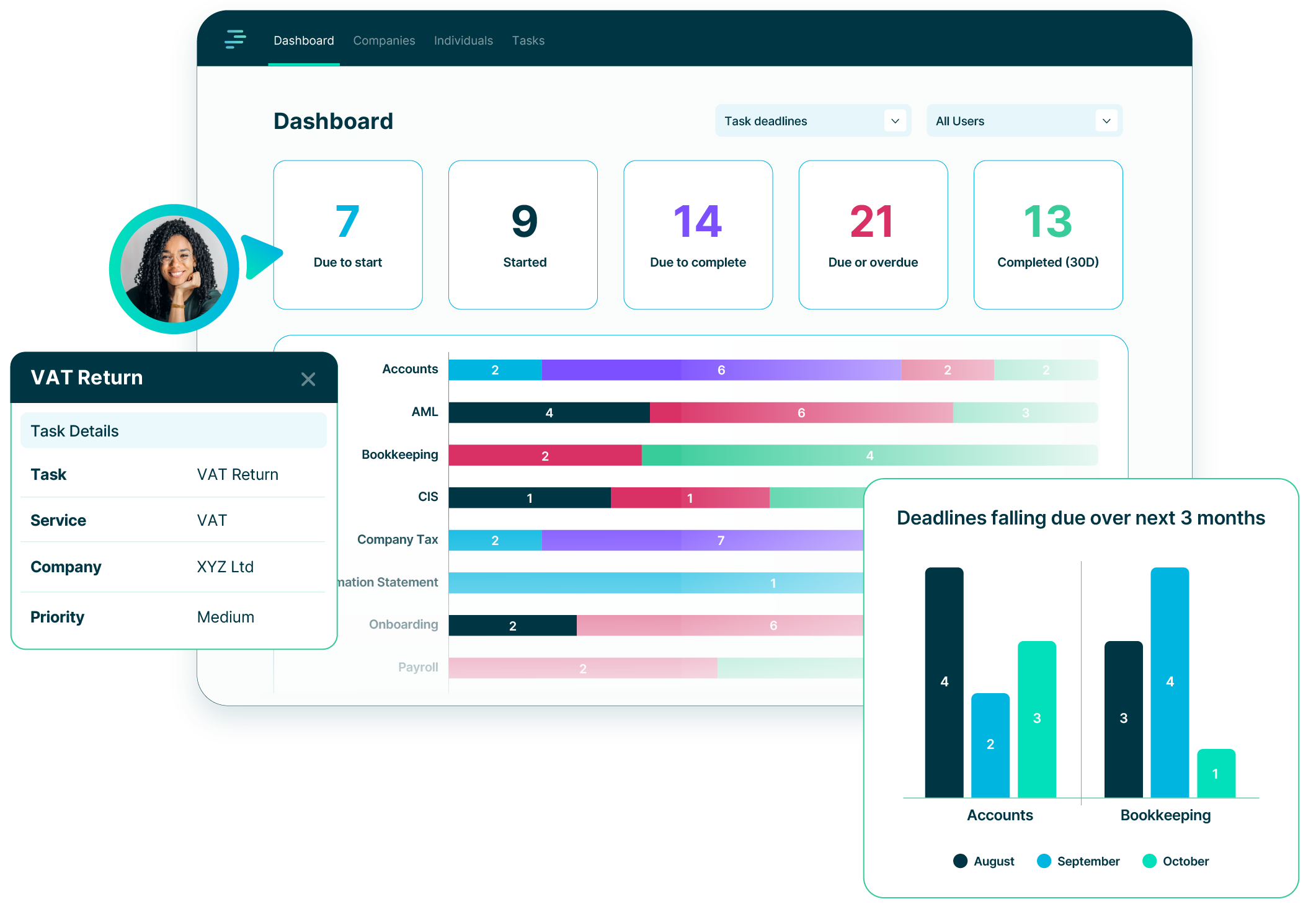
While recruiting and retaining good staff or grappling with clunky systems may be higher up the list of problems for many firms, task and deadline management quietly sits underneath them all.
If tasks are not managed properly, everything else becomes harder: onboarding staff, covering absences, and keeping clients happy.
Here are the most common task and deadline pain points small firms face, and how to tackle them.
If your team tackles the same task in different ways, you cannot be sure of consistent, high quality results. It also makes training harder and handovers riskier.
Standardised checklists make sure the basics are done consistently. For recurring tasks like VAT returns, payroll, or year-end accounts, they remove the guesswork and ensure every client gets the same reliable service.
Spreadsheets are brilliant for many things, but managing multiple tasks across a team isn’t one of them. Tracking deadlines in Excel or Google Sheets can work for a while, but there are too many ways it can go wrong: version control issues, accidental changes, or confusion over who updated what and when.
A proper task management tool shows live data in one place. Each task should have a deadline, a clear status, a priority, and only one owner at any one time. You can instantly see what is on track, what is urgent, and what is overdue.
Most firms do not miss deadlines because they have forgotten them; it is because warning signs come too late. By the time it is obvious, there is no time left to fix the problem.
That is why dashboards are so useful. They provide a clear overview of task status by service and by user and ideally a way to look forward at upcoming work against resource constraints. Problems need to be flagged early, before they turn into late filings or unhappy clients.
I have also heard of deadlines being missed because firms delayed work when the client did not pay. Not something professional bodies would endorse, but it shows how task management and cash flow can be linked in unexpected ways.
In many small firms, the owner is still the unofficial project manager, remembering every client deadline, chasing missing information, and keeping track of who is doing what.
I often hear comments like “When I go on holiday, I have to keep an eye on what is going on back at the office.”
A centralised task management system changes that. When deadlines, tasks, and progress are visible to the whole team, the work can keep moving forward even when the boss is out. It is not about removing responsibility; it is about making the firm less dependent on one person’s memory.
And if you want a quick update, you can check the PracticeFlow dashboard on your mobile while you’re sitting at the bar.
When firms get serious about task management, some jump into all-in-one systems that promise to do everything from emails to billing. More often than not, they end up spending more time learning the software than using it.
We’re all so busy. Time is precious. Nobody wants to waste days learning an overly complex system. The firms that see the quickest wins start small. They focus on core task management: who is doing what, for which client, by when. No bloat. No distractions. Just a reliable way to manage recurring client work, stay on top of deadlines, and keep everyone aligned.
Clients expect faster turnaround and a more proactive service. Regulations keep changing. Staff recruitment remains tough.
Better task management will not solve every challenge, but it gives you the breathing space to deal with them. It helps you:
Better task management is not about chasing perfection. It is about removing the everyday frustrations that waste time and create stress. With PracticeFlow, setup takes just a few simple steps and core services are automated from day one. The result is immediate clarity: you can see what is due, who is responsible, and what needs attention, so you can focus on clients, not admin.
Thinking of streamlining your task management?
Whether you’re ready for a new system or just looking to make a few improvements, the key is to start simple. If you’d like to see how PracticeFlow handles the essentials, feel free to explore the platform.
Join the growing number of UK accounting and bookkeeping practices using PracticeFlow to stay organised, meet deadlines, and focus on what matters most.
